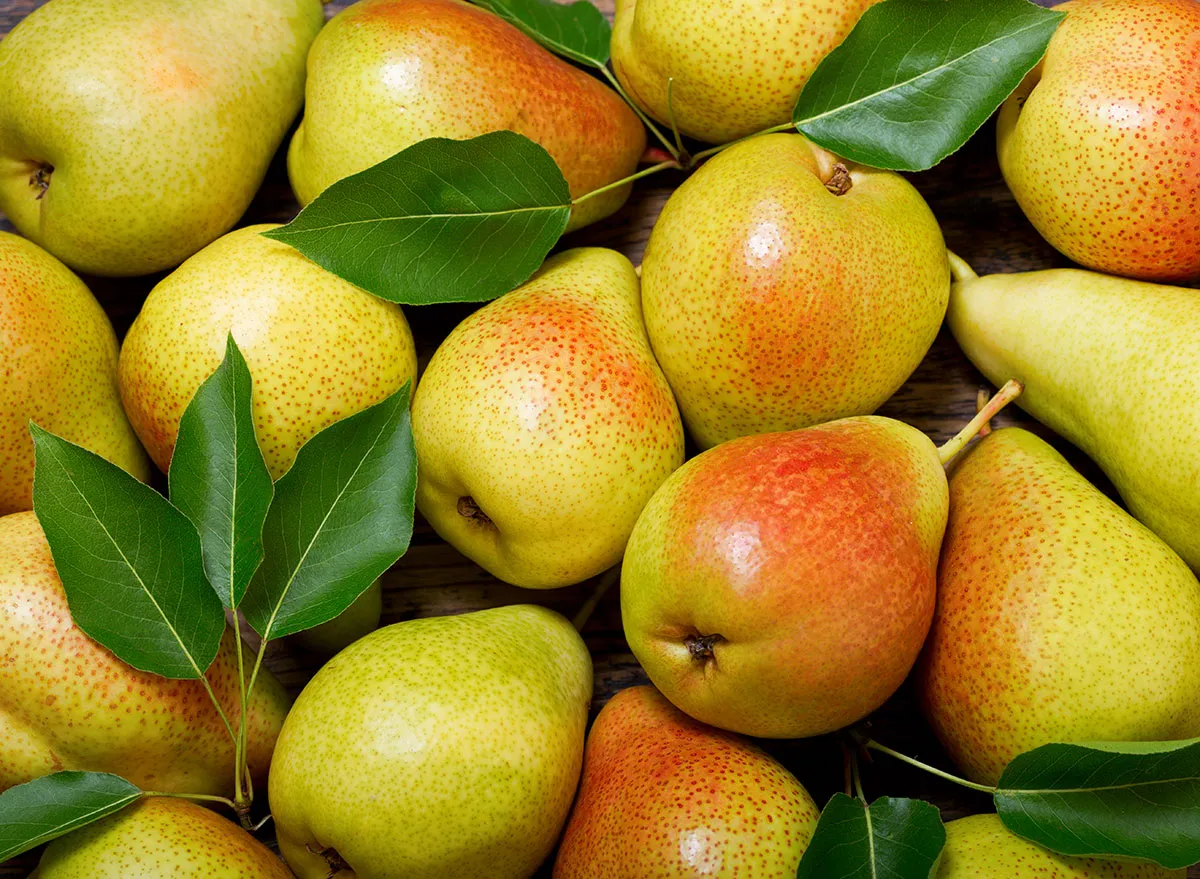
Pears are a bit of an underdog when it comes to fall food, especially when most of the attention goes toward foods like pumpkin, squash, and apples. But what many people don't know is that pears come with a ton of health benefits.
According to Amy Goodson, MS, RD, CSSD, LD author of The Sports Nutrition Playbook, one major effect of eating pears is that they are an excellent source of fiber.
"There are about 6 grams of fiber in a medium-sized pear," says Goodson, "and with both soluble and insoluble fiber content, they are great for your heart and gut health."
Read to learn more about the benefits of eating fibrous foods like pears, and for more healthy eating tips be sure to check out The 7 Healthiest Foods Right Now.
Why we need fiber
Fiber is a key nutrient that your body needs for regular digestion, a healthy gut, and even preventing chronic disease. And the fascinating part is that your body actually can't digest fiber in the same way it can with other nutrients.
Instead, fiber passes through by either absorbing liquid or being absorbed by liquid-depending on which type of fiber it is!
READ MORE: 13 Health Benefits of a High Fiber Diet
Soluble fiber
There are two types of fiber: soluble and insoluble, and most fibrous foods (pears included) contain both. Soluble fiber dissolves in water and becomes gelatinous in your body. And according to Goodson, it helps you maintain a healthy gut and heart.
"Soluble fiber can help your gut by acting as a prebiotic and feeding the "good" bacteria in your body," says Goodson, "and it can also keep your heart healthy by helping lower your cholesterol."
Insoluble fiber
According to the Harvard School of Public Health, insoluble fiber can't be dissolved in water and instead helps soften our stool for easier digestion and bowel movements. Because of its effects on our regularity, insoluble fiber has been known to limit constipation and even help lower our risk of chronic diseases like type 2 diabetes.
RELATED: Dangerous Signs You're Not Eating Enough Fiber
Other benefits of eating pears
Aside from their fiber content, pears also contain high levels of the antioxidant known as flavonoids. According to a report published in the Journal of Food Composition and Analysis, flavonoids have been known to lower inflammation in the body and lower risk of chronic disease.
If you're now convinced to incorporate more pears into your diet but need some creative ways to do it, we've got you covered. You can try eating pears in a delicious goat cheese salad, using them as an ingredient in your next smoothie, or even enjoying them in a fall dessert!
For more healthy eating news, make sure to sign up for our newsletter!
Read these next:
One Major Effect of Eating Pears, Says Dietitian | Eat This Not That - Eat This, Not That
Read More

No comments:
Post a Comment